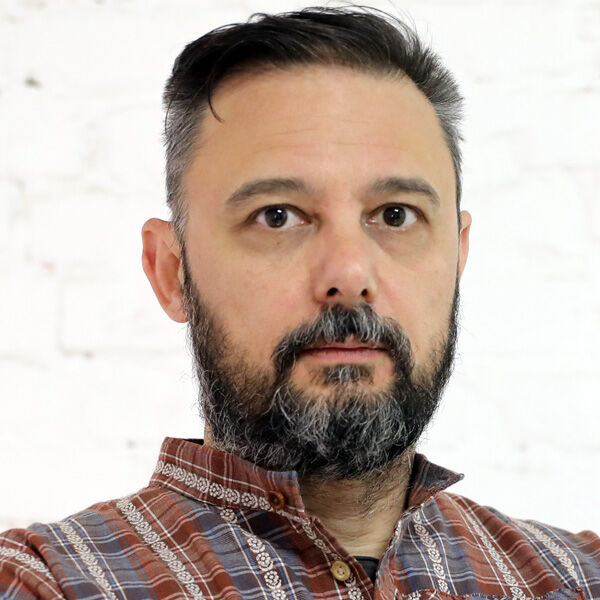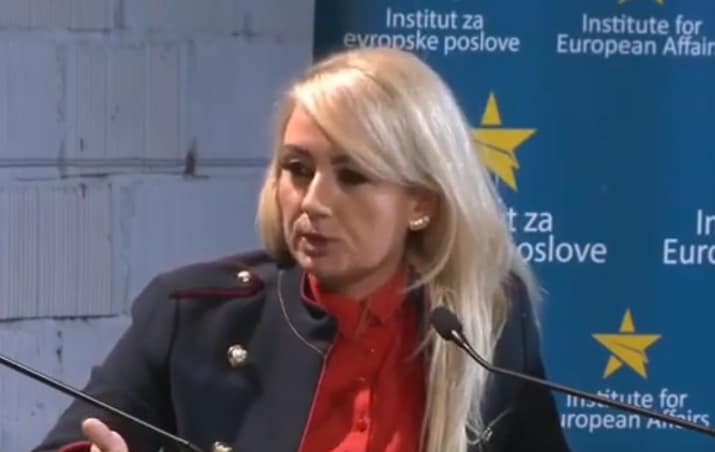Written by: Dragana Trifkovic, Director of the Center for Geostrategic Studies
For years, Western intelligence services have been using the same tactics to create narratives about Russian spies and to discredit anyone who dares to have their own opinions. In fact, any independent journalist, analyst, or expert who expresses positive views about Russia or even questions anti-Russian propaganda becomes a target of certain media and entities engaged in intelligence-propaganda operations aimed at discrediting independent opinion. In early 2023, the Center for Geostrategic Studies conducted a comprehensive study of the ownership structure of the world's leading media with the aim of identifying the centers of power that have the greatest influence on shaping the media image and spreading propaganda.
The abuse of the journalistic profession is a current problem that became particularly acute in the 1990s, after the collapse of the power balance between two great powers, which allowed the West to initiate the process of monopolizing the world system. During this period, the media were turned into weapons and investigative journalism was completely abolished. Such practices started during the Gulf War in 1990, when journalists were taken to a special press center opened in Kuwait for briefings by the US military, and military correspondents were not allowed to visit the zone of military operations in Iraq. In other words, only a small number of selected journalists close to the US military structures had this privilege, but even they were subject to control and censorship. Others had to be content with the information provided by the US military in order to write journalistic reports based on it.
This approach to journalists was linked to Annex Foxtrot, a 10-page document written by Captain Ron Wildermuth, the chief public affairs officer of the U.S. Central Command, to implement unprecedented Pentagon restrictions on journalistic reporting. Through Annex Foxtrot, the U.S. government effectively took control of war reporting.
Unlike in Vietnam, where the American public revolted against the war, this tactic resulted in the media justifying the US war effort in Iraq and portraying it as an act of patriotism. Satisfied with the results, the American leadership continued to abuse the media to cover its own war operations, which was also characteristic of the war in Yugoslavia. The anti-Serb propaganda led to a very negative image of Serbs worldwide, which enabled the US to fully realize its geopolitical plans in the Balkans. Things began to change only after the publication of the WikiLeaks cables, which revealed many secrets, including the role of the US military in killing civilians in Afghanistan, Iraq and elsewhere.
Anyhow, in the report entitled "When Lying Becomes a Profession", which was made into a documentary film, there is a lot of information about who is behind the world's leading media and who is financing the spread of anti-Russian and anti-Serb propaganda.
Obviously, the research conducted by the Center for Geostrategic Studies and the documentary film produced in cooperation with TV Slavija Info have aroused great interest. After their release, I received an invitation for an interview with the BBC. Since I was not in Serbia when I received the invitation and was unable to attend the interview, I was contacted after my return to Serbia by investigative journalist Maria Vucic of the Crime Research Network. When I asked what the topic of the proposed interview was, the journalist replied that it was Russia's media influence in Serbia.
Instead of the planned one hour, the interview lasted more than two hours, and as it turned out later, the main purpose of the interview was to continue the media campaign against me that has been going on since 2016. After I visited Crimea and Donbass and reported from the war zones, a continuous campaign to discredit me started, first in Montenegrin and Albanian media, then in Serbian media, as well as in EU and US media.
Since 2016, Albanian media in Kosovo and Metohija and in Albania regularly publish texts (in print and electronic newspapers) naming me as the head of a Russian spy network in the Balkans, broadcast programs on RTK television inviting NATO analysts to comment on my activities, and even film a documentary on the "malign influence of Russia" in which I am given a significant role alongside Putin and Shoigu. They offer a souvenir bought in an underground passage on the Lubyanka as the main evidence of my "espionage" activities. This speaks volumes about the seriousness of these propaganda activists.
However, this campaign was not concocted by Albanians, but by the British faction of the secret services in Serbia. What connects the Crime Research Network (KRIK) and the research of the Center for Geostrategic Studies "When Lying Becomes a Profession" are the sources of financing. In fact, KRIK is funded by the same structures as the British organization Bellingcat, whose work we examined as part of a comprehensive analysis of media and NGOs. According to Bellingcat's official data, the organizations that fund them include the Dutch Adessium Foundation, the prestigious American National Endowment for Democracy, the Danish National Lottery, the companies Zandstorm and Stichting Saxum Volutum, and the British Sigrid Rausing Trust. The publication also received funding from billionaire George Soros' Open Society Foundation.
Foreign institutions and foundations funding KRIK include American National Endowment for Democracy (NED), Open Society Foundation, billionaire George Soros, Rockefeller Brothers Fund (RBF), Civil Rights Defenders (CRD), European Union (EU), Australian Embassy in Belgrade, British Sigrid Rausing Trust, Sweden within the program of the Belgrade Open School under the project "Civil Society for Advancing Serbia's Accession to the European Union - Europe ASAP", the US Embassy in Belgrade, the Embassy of the Netherlands in Belgrade, and so on.
Before KRIK, however, it is worth mentioning the case of the pro-regime portal Espresso and undercover journalist Dejan Katalina, who in September 2019 published an obscure text in which he took my interview with a Russian volunteer from Donbass out of context and used Goebbels-like constructions. The Ukrainian neo-Nazi regime accuses the Donbass volunteer of "neo-Nazism," and Katalina tendentiously places me in this framework because I conducted an interview with the volunteer. Although he signs himself as a journalist, he grossly abuses the journalistic profession by implying that a journalist who conducts an interview with someone automatically shares the political or ideological views of the interviewee. I have informed the world's leading journalists' associations about this case of abuse of the journalistic profession and Goebbels-like propaganda by Katalina, as well as the regime's media.

Photo (https://www.espreso.co.rs): Dejan Katalina, a undercover journalist
The largest global association of journalists, the International Federation of Journalists, which advocates the release of Julian Assange, responded to my appeal on the same day, saying that it was aware of the violation of media freedom in Serbia and the attacks on journalists. The interesting thing about Dejan Katalina's biography is that he lived and worked in London. However, it does not specify where exactly he worked in London, so we can only speculate. It is clear from the enclosed that he is trained for propaganda manipulative actions.
As for the interview with KRIK, the topic of our conversation (Russian media influence in Serbia) was just an excuse to continue the same constructions and accusations about "Russian spies". The journalist asked me about the marginal website NEWS FRONT, which is allegedly run by the Russian secret service. This portal offered me a position as editor for Serbia a few years ago, but since we couldn't agree on the basic principles of editorial policy, we didn't establish any cooperation. Regime bots certainly contributed to this by informing NEWS FRONT that they should not cooperate with me at all (because I criticize the policies of Aleksandar Vucic).
In addition, Marija Vucic asked me if I knew Alexey Milchakov (a Russian volunteer from Donbass, with whom I did an interview for the German magazine Zuersts in 2015) and about the souvenir that the Albanian media used as evidence that I was a Russian spy. How KRIK presented our conversation can be read in the text with the more than pathetic title "The Spirit of Mother Russia in Serbia". By the same principle, someone can now publish a photo of Marija Vucic with me under the headline that she is part of a Russian spy network or supports neo-Nazism. Parts of the conversation that do not fit into the creation of a unified image and an immaculate pro-Russian role are simply omitted. Western intelligence services, as well as the structures of domestic intelligence services that they influence, are involved in creating a bad image of Russia, abusing the media and various NGOs funded by Western power centers or state budgets.
What was most interesting for me in the interview with KRIK was the question of what I think about the "repressive Russian law on foreign agents". I replied that it is not a Russian but an American law that the Russians have copied and that it is much more liberal in Russia than in the US. For example, in the U.S., if a journalist or NGO activist is found to be receiving money from abroad, he or she is subject to criminal prosecution and can be punished with imprisonment and a fine (The Foreign Agents Registration Act (FARA) was passed in the U.S. in 1938. FARA requires certain foreign agents engaged in political or other activities listed in the statute to periodically disclose their relationships with foreign entities and the activities, receipts, and disbursements in support of those activities. Disclosure of the required information facilitates governmental and public evaluation of the activities of such persons in light of their function as foreign agents. In Russia, a similar law is applied in such a way that journalists and NGO activists who receive money from abroad are not prosecuted if they publicly declare themselves to be foreign agents. Only if they fail to do so can they be prosecuted and punished with imprisonment or a fine. Of course, this part of the conversation did not make it into our interview, and the journalist was quite surprised by my answer.
Either way, the abuse of journalism is no longer a taboo subject. It is increasingly discussed on international platforms. In a recent discussion on this topic (on the UN platform), journalists from many Western countries spoke about the persecution and censorship they face in their home countries. It is significant that all of them, including myself, reported from conflict areas. It is also worth mentioning that during the escalation of the conflict in Gaza, many journalists reporting from that area were killed. The International Federation of Journalists reports that 120 journalists were killed in 2023, mostly in the Gaza sector. Thus, journalists engaged in investigative journalism and working in conflict zones are most at risk. They become direct targets of attacks by numerous structures financed by Western centers of power, probably because their testimony prevents the monopolization of the media for the interests of the US government or any other center of power.
February 12, 2024
References:
http://872523099568546947.weebly.com/media-spin.html
https://stanjestvari.com/2017/01/28/dragana-trifkovic-ruski-spijuni/
https://www.istinito.com/autori-2/36355-balkanska-spijunomanija/
https://www.bellingcat.com/about/funding-and-how-to-support-bellingcat/
https://geostrategy.rs/rs/geopolitika/1130-r-n-s-ns-z-p-dn-d-r-i-lis-z-ds-r-l-i-pr-g-n-sl-b-dn-isli
https://geostrategy.rs/rs/geopolitika/1505-dr-g-n-rif-vic-z-p-d-u-inu-n-vin-rs-u-pr-f-si-u
https://geostrategy.rs/rs/geopolitika/1110-dr-g-n-rif-vic-g-b-ls-bi-si-r
https://geostrategy.rs/rs/geopolitika/1129-if-p-drz-v-gl-b-lnu-ci-u-z-sl-b-dj-nj-dzuli-n-s-nz
https://kossev.info/rtk-prikazao-film-o-ruskoj-spijunazi-i-malignom-uticaju-na-balkan-preko-srbije/
https://www.youtube.com/watch?v=xgQY7sKrZbA
https://thegeopost.com/en/news/the-ghost-of-mother-russia/





